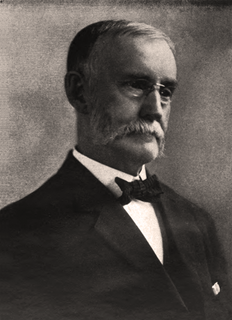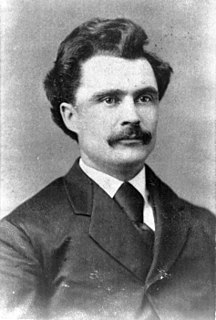A Quote by Johann Wolfgang von Goethe
Men are so inclined to content themselves with what is commonest; the spirit and the senses so easily grow dead to the impressions of the beautiful and perfect, that every one should study, by all methods, to nourish in his mind the faculty of feeling these things. ...For this reason, one ought every day at least, to hear a little song, read a good poem, see a fine picture, and, if it were possible, to speak a few reasonable words.
Related Quotes
Life is a building. It rises slowly, day by day throughout the years. Every new lesson we learn lays a block on the edifice, which is rising silently within us. Every experience, every touch of another life on ours, every influence that impresses us, every book we read, every conversation we hear, every act of our commonest days, adds something to the invisible building.
The story man must see clearly in his own mind how every piece of business will be put over. He should feel every expression, every reaction. He get far enough from his story to take a second look at it... to see whether there is any dead phase... to see whether the personalities are going to be interesting and appealing to the audience. He should also try to see that the things that his characters are doing are of an interesting nature.
I'm not sure where I heard it or why I believed it but when I was in my mid-twenties, a few words changed my approach to and experience of prayer. The words were these: 'Every thought you think is a prayer. Every word you speak is a prayer. Every act in which you engage is a prayer, because the Spirit of God lives in you.' Now, how awesome is that?
Words too familiar, or too remote, defeat the purpose of a poet. From those sounds which we hear on small or on coarse occasions, we do not easily receive strong impressions, or delightful images; and words to which we are nearly strangers, whenever they occur, draw that attention on themselves which they should transmit to other things.
The refining influence is the study of art, which is the science of beauty; and I find that every man values every scrap of knowledge in art, every observation of his own in it, every hint he has caught from another. For the laws of beauty are the beauty of beauty, and give the mind the same or a higher joy than the sight of it gives the senses. The study of art is of high value to the growth of the intellect.
The reason why Matthew Arnold, to my feeling, fails entirely as a poet (though no doubt his ideas were good - at least, I am told they were) is that he had no sense of touch whatsoever. Nothing made any impression on his skin. He could feel neither the shape nor the texture of a poem with his hands.
Generally there is in man a divinity which strives to push him onward and upward. We believe that this power within him is the spirit that comes from God. Man lived before he came to this earth, and he is here now to strive to perfect the spirit within. At sometime in his life, every man is conscious of a desire to come in touch with the Infinite. His spirit reaches out for God. This sense of feeling is universal, and all men ought to be, in deepest truth, engaged in the same great work—the search for and the development of spiritual peace and freedom.
Truly fine poetry must be read aloud. A good poem does not allow itself to be read in a low voice or silently. If we can read it silently, it is not a valid poem: a poem demands pronunciation. Poetry always remembers that it was an oral art before it was a written art. It remembers that it was first song.


































